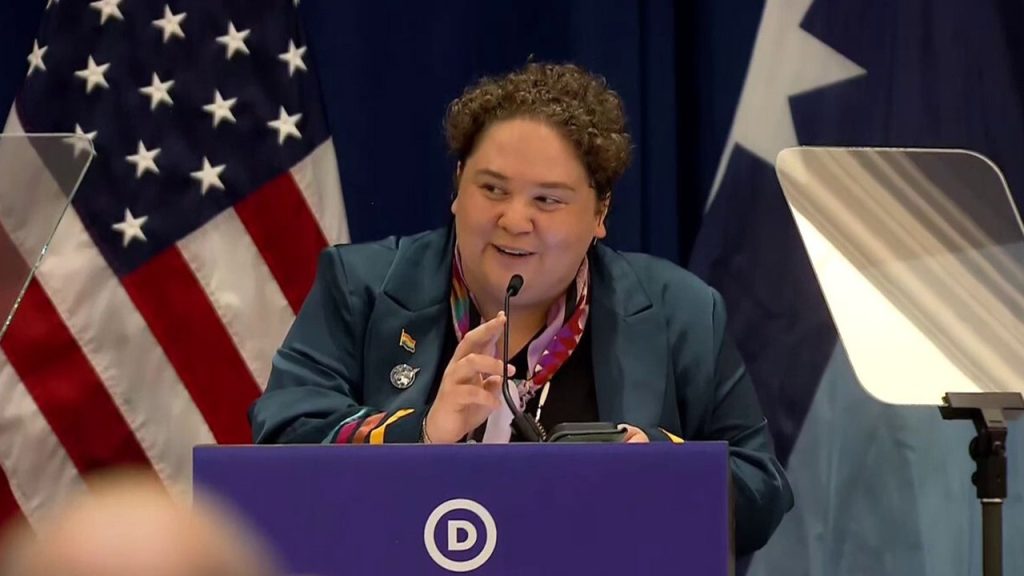DNC Summer Meeting Opens with Acknowledgment of Indigenous Land and History
In a thoughtful gesture that speaks to growing awareness of America’s complex historical relationships with Indigenous peoples, the Democratic National Committee began its annual summer meeting in Minneapolis with a “land acknowledgment” ceremony. This practice, increasingly common at progressive gatherings, aims to recognize the original inhabitants of the land where events take place – though it has sparked conversations about how such acknowledgments should be framed and what purpose they ultimately serve.
Lindy Sowmick, treasurer of the Minnesota Democratic-Farmer-Labor Party who identifies as an “Indigenous queer woman,” delivered the acknowledgment after being introduced by DNC Chairman Ken Martin. Her words honored the Dakota Oyate (Dakota people) as “the original stewards of the lands and waters of Minneapolis,” noting their care for the Mississippi River and surrounding territories for thousands of years before colonization. Sowmick’s statement ventured beyond mere recognition, however, addressing what she described as “a history of broken treaties and promises” and asserting that “in many ways, we still live in a system built to suppress Indigenous peoples’ cultural and spiritual history.” This framing reflects a perspective increasingly embraced within progressive circles that views American institutions through a critical lens focused on historical injustices and their ongoing impacts.
The ceremony was more than symbolic formality to Sowmick, who urged the assembled Democrats to see land acknowledgments as more than “the checking of a box.” She called on party members to approach these recognitions with genuine curiosity and engagement, encouraging them to “ask questions, ensure our native neighbors are heard and work in partnership with your Indigenous communities.” Her appeal emphasized connecting historical recognition with present-day relationships, suggesting that Democrats should “honor the legacy of this land and its people by engaging today with each other with honesty, humility, respect and compassion.” This call to action transforms what could be a perfunctory ritual into an invitation for deeper connection and understanding.
The Minneapolis gathering brought together more than 400 Democratic Party officials from across the nation, representing all 50 states at a downtown hotel. This summer meeting serves as an important organizing and strategizing session for the party, particularly significant as Democrats continue to develop their messaging and approach following the Chicago convention. The land acknowledgment set a tone that emphasized historical awareness and cultural sensitivity as foundational values for the proceedings that followed.
This practice of beginning major Democratic events with land acknowledgments appears to be becoming standard for the party. The DNC’s national convention in Chicago earlier this year similarly included such a ceremony, with speakers specifically addressing the U.S. government’s role in forcibly removing tribal communities from their traditional lands. This consistency suggests that party leadership views these acknowledgments as aligned with core Democratic values and messaging priorities, particularly around issues of social justice and historical reconciliation.
The party has formalized this commitment in its 2024 platform, which includes a land acknowledgment on its first substantive page. The platform statement recognizes that “we gather together to state our values on lands that have been stewarded through many centuries by the ancestors and descendants of Tribal Nations who have been here since time immemorial.” It further honors “the communities native to this continent” while acknowledging “that our country was built on Indigenous homelands,” and pays respect “to the millions of Indigenous people throughout history who have protected our lands, waters, and animals.” By incorporating this language into its official platform, the Democratic Party signals that recognition of Indigenous history and rights represents not merely a ceremonial gesture but a component of its political identity and policy orientation heading into future elections.


